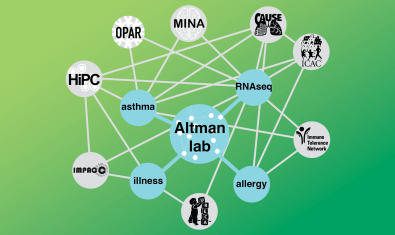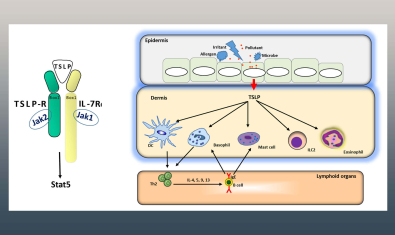Asthma: Disease Overview
Asthma is a common immune system disease that affects the lungs. As many as one in 13 people in America, including many children, live with asthma. BRI’s team is working to better understand the immune cells and processes that lead to asthma. We’re also working to identify new treatments that target the underlying cause of asthma, unlike most existing therapies which only treat the symptoms. Finding new treatment options and determining how to find the best therapy for each person is also a key piece of BRI’s asthma research.
What Is Asthma?
Asthma is a disease that affects the lungs and often starts during childhood. When a person with asthma experiences an asthma exacerbation, also called an asthma attack, their airways can become swollen, narrow and produce extra mucus. This makes it difficult to breathe. Asthma symptoms are caused by different triggers in different people. Common triggers include viral infections, allergens like pollen and mold, and air pollution.
What Causes Asthma?
Scientists, including those at BRI, are still working to understand why some people develop asthma. Both environmental and genetic factors influence asthma risk. Asthma is particularly common in dense urban areas and among socioeconomically disadvantaged individuals. Children who develop allergies are at significantly higher risk of also developing asthma. Poor air quality and living in a place with high levels of air pollution for a long time also increase the likelihood of developing asthma. Asthma tends to run in families, but the genetic contributions are only partially understood. Some children who experience serious respiratory infections during infancy and early childhood may also be more likely to develop asthma.
What Is the Latest Research Into Asthma?
BRI's current research includes:
- Examining epithelial and immune cells from the airways of children with asthma to better understand what goes wrong during an asthma attack.
- Understanding how viral infections and air pollution trigger asthma.
- Conducting fundamental research and testing immunotherapies that target the root cause of asthma.
- Working toward personalized medicines for asthma.
Labs Studying Asthma

Altman Lab





